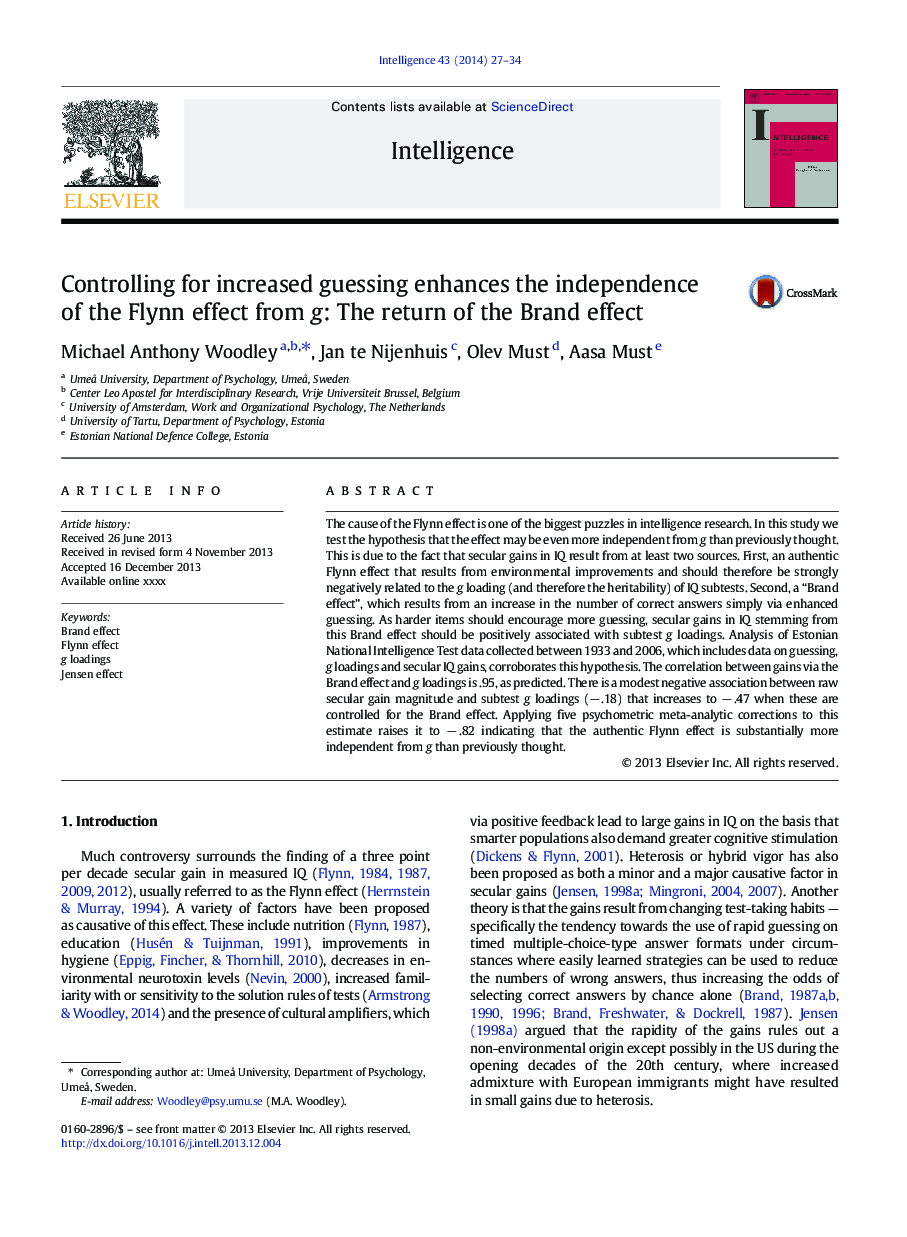| Article ID | Journal | Published Year | Pages | File Type |
|---|---|---|---|---|
| 7294597 | Intelligence | 2014 | 8 Pages |
Abstract
The cause of the Flynn effect is one of the biggest puzzles in intelligence research. In this study we test the hypothesis that the effect may be even more independent from g than previously thought. This is due to the fact that secular gains in IQ result from at least two sources. First, an authentic Flynn effect that results from environmental improvements and should therefore be strongly negatively related to the g loading (and therefore the heritability) of IQ subtests. Second, a “Brand effect”, which results from an increase in the number of correct answers simply via enhanced guessing. As harder items should encourage more guessing, secular gains in IQ stemming from this Brand effect should be positively associated with subtest g loadings. Analysis of Estonian National Intelligence Test data collected between 1933 and 2006, which includes data on guessing, g loadings and secular IQ gains, corroborates this hypothesis. The correlation between gains via the Brand effect and g loadings is .95, as predicted. There is a modest negative association between raw secular gain magnitude and subtest g loadings (â .18) that increases to â .47 when these are controlled for the Brand effect. Applying five psychometric meta-analytic corrections to this estimate raises it to â .82 indicating that the authentic Flynn effect is substantially more independent from g than previously thought.
Keywords
Related Topics
Social Sciences and Humanities
Psychology
Experimental and Cognitive Psychology
Authors
Michael Anthony Woodley, Jan te Nijenhuis, Olev Must, Aasa Must,
